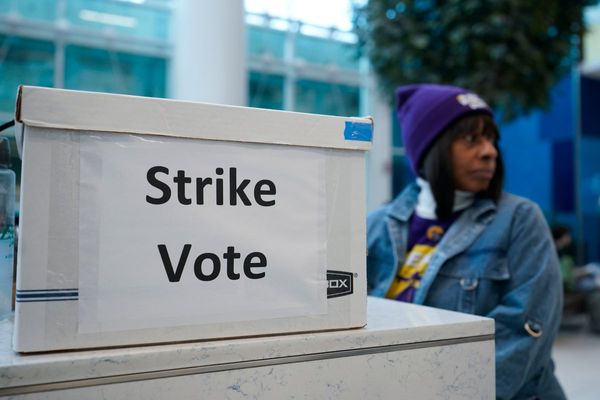
Edinburgh (AFP) - Scotland's parliament is set to confirm Humza Yousaf as the new first minister on Tuesday, after he narrowly won the contest to succeed Nicola Sturgeon as Scottish National Party (SNP) leader.
Yousaf beat two SNP rivals on Monday to clinch the party's top job, vowing to rejuvenate its flagging pursuit of independence for Scotland.
The 37-year-old will be the youngest first minister since devolution reforms created the Scottish parliament in 1999, and the first Muslim leader of a major UK party.
"We should all take pride in the fact that today we have sent a clear message that your colour of skin, or your faith, is not a barrier to leading the country we all call home," Yousaf said in his victory speech.
Promising to be a leader "for all of Scotland", he pledged to "kickstart" a civic movement that would "ensure our drive for independence is in fifth gear".
"We will be the generation that delivers independence for Scotland."
'Focused'
Members of the Scottish Parliament will vote to confirm a new first minister later on Tuesday, with Yousaf ensured of succeeding Sturgeon given the SNP is the largest party in the devolved assembly.
In the hours before the vote, Sturgeon sent her formal letter of resignation to King Charles III, and left the first minister's official residence in Edinburgh for the last time.
Yousaf will be sworn in as first minister at a ceremony on Wednesday, following formal approval from the king -- whom he wants to dislodge in favour of an elected head of state for Scotland.
SNP leaders took pride in Scotland becoming the first democracy in western Europe to appoint a Muslim as leader.
"I think what it says about the UK is that we are a welcoming group of nations, and Scotland in particular," Stephen Flynn, the party's leader in the UK parliament, told AFP.
He contrasted that with UK Prime Minister Rishi Sunak's Conservative government seeking "to outlaw asylum seekers" through new legislation to tackle boatloads of migrants crossing the Channel.
The seismic shift in Scottish politics follows Sturgeon's surprise resignation announcement last month after more than eight years at the helm.
It followed a stormy period for her government, during which support for independence has slipped.
Recent surveys show around 45 percent of Scots back Scotland leaving the United Kingdom -- the same tally recorded in a 2014 referendum which London insists settled the matter for a generation.
Sunak's spokesman told reporters that the new SNP leader should focus on economic and policy issues "that matter" to Scottish voters.
"That's what the (UK) government will be focused on," he added.
Vision?
Yousaf, who was health minister in Sturgeon's last cabinet, narrowly topped the SNP contest with 52 percent of members' preferentially ranked votes.
He attracted criticism over his record in several roles in government.
He now faces a bigger challenge to win over the wider Scottish electorate, with a UK general election expected within the next 18 months.
An Ipsos poll conducted shortly before he was announced as SNP leader showed that half of Scots feel that the country is heading in the wrong direction, while just a quarter feel it is heading in the right direction.
Despite winning a succession of elections under Sturgeon, the SNP also faces bitter divisions following the three-way leadership battle.
Scottish culture minister Neil Gray, who managed Yousaf's election campaign, said his friend would reach out to defeated rivals Kate Forbes and Ash Regan.
"He will look to utilise the talent across the party in a big-tent approach," Gray told Times Radio.
"In terms of what Humza will do differently, he has already said that he will be his own man.He will have his own leadership style," Gray added.
Sturgeon's last months in power were overshadowed by the backlash against a new Scottish law allowing anyone over 16 to change their gender without a medical diagnosis.
As debate raged, the UK government used an unprecedented veto to block the legislation.
The UK Supreme Court last year also ruled that Sturgeon's government could not hold a new referendum on Scottish independence without London's approval.
The twin setbacks prompted rare criticism of Sturgeon's leadership and tactics.







